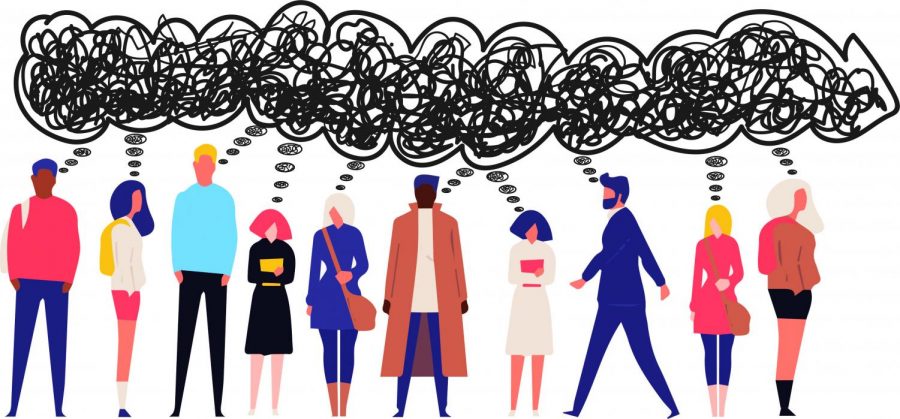WSU needs specialized mental health programs
Many minority groups don’t receive services they should for mental health, better training needed to help them
BONNIE JAMES | THE DAILY EVERGREEN
People from many different backgrounds enroll at WSU, so it’s important programs meant to assist students are accessible to everyone and the faculty is trained to treat people when they come in with problems related to that background.
April 10, 2019
Generational trauma that impacts many students of color can often require specialized counseling, which WSU right now cannot offer without more well-trained individuals. Actively working to improve how personnel understand and sympathize with those who come from this background will better support ethnic communities at WSU.
Cougar Health Services has an office for Counseling and Psychological Services it offers to all students, but this approach does not reach the groups that need it most often. Barriers like cultural mistrust push many students to face these issues on their own rather than seek professional guidance.
Cultural mistrust is a feeling of unease held toward European Americans deriving from historical and personal oppression endured by people of color. It is important for all people of color to feel they have someone who can understand and relate to their struggles. Better representation among health professionals will help encourage students to seek those psychological services.
Just one of many underrepresented groups, Asian Americans are in some cases less likely to pursue help for their stress than white Americans, according to a study on the help utilization patterns of these groups.
Ellen Taylor, WSU associate vice president of student engagement, recognizes this as a serious issue that needs to be addressed.
“We are going to be developing a five-year plan for all of Cougar Health Services in terms of a budget plan,” Taylor said. “That will certainly include staffing.”
While representing students of color is best done by recruiting more therapists and psychologists of diverse backgrounds, every professional should be trained to treat the issues of these groups.
If WSU wants to offer an equal level of treatment to all communities at WSU, we must ensure that professionals are taught to empathize and relate to these groups. Currently, WSU works with Positions in Counseling Centers to connect facilitators with positions in colleges and universities. Yet recruitment efforts fail to address the disparities prevalent between groups of students who seek help.
“I don’t know if we have done enough,” Taylor said. “I think one of the things that we can do is think, really [look] at the overall staffing and identifying: are there different types of credentials that would increase the likelihood that we can recruit counselors of color?”
WSU should create an appropriate outreach program for students of color, as they are the demographic which are most likely to suffer from major depressive disorders. African Americans, for example, are 10 percent more likely to report serious mental stress than non-Hispanic white Americans, according to the Department of Health and Human Services Office of Minority Health.
Some American Indian populations are also more vulnerable to depression and anxiety disorders, according to a study sampling from two reservations.
It is vital to facilitate mental health treatment for students of color. Awareness of mental health does not accomplish enough since people of color often face a cultural barrier and may not seek aid. While efforts at WSU to recruit more staff for the counseling and psychological services is a start, more is needed to assist these groups.
If WSU truly wants to achieve equality within mental health awareness, it has to make certain that they are incorporating the needs of groups who have difficulties seeking therapy. This process should include recruiting more therapists and counselors of color, but should also include better general training for these issues for all of WSU’s staff.











